How the Authors of 'All the President’s Women' Found 43 New Allegations of Sexual Misconduct Against Donald Trump
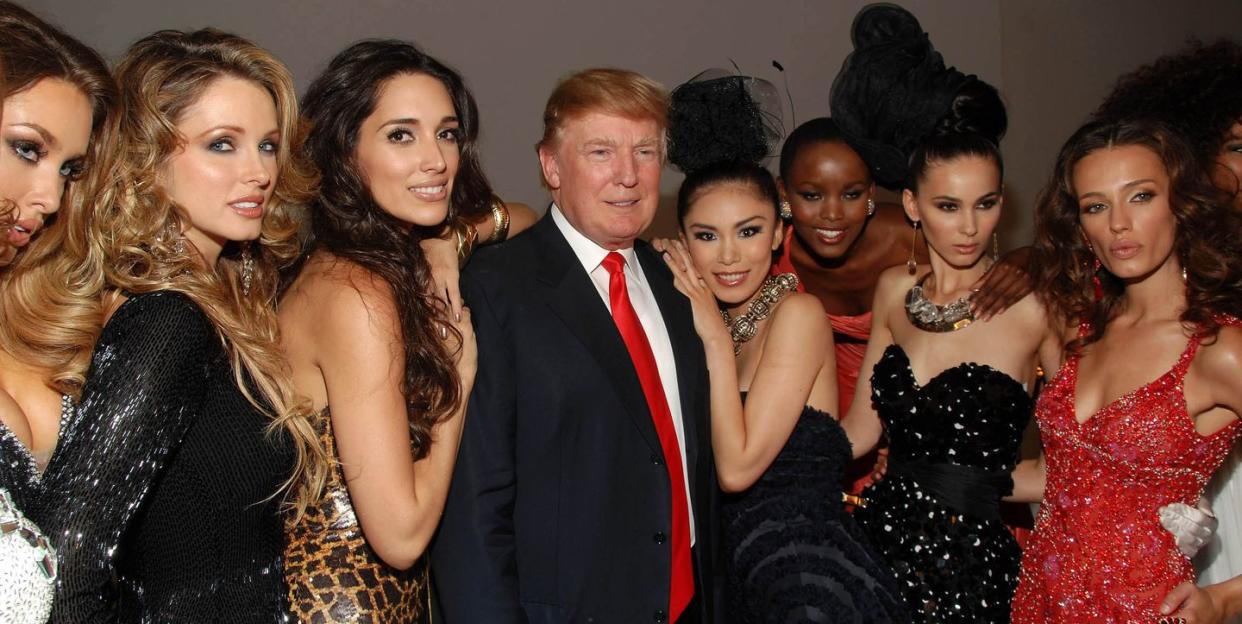
- Oops!Something went wrong.Please try again later.
If you thought reporters had turned over every stone in the case of Donald Trump’s transgressions against women, think again. In their new book, All the President’s Women: Donald Trump and the Making of a Predator, veteran journalists Barry Levine and Monique El-Faizy draw on over 100 interviews, many of them exclusive interviews with subjects speaking out for the first time, to piece together a detailed tapestry of Trump’s relationships with women, stretching all the way back to his upbringing by retrogressive parents and his days as a military school lothario. Levine and El-Faizy chronicle Trump’s rise through real estate, media, and eventually politics, all the while with a carousel of beautiful women on his arm. What emerges from this compendium of reporting are disturbing patterns of predatory behavior from a man who uses wealth and power to abuse women, as well as deep insight to the cultural forces that have allowed such predators to operate free of consequences.
Esquire spoke with Levine and El-Faizy about the reportorial process, the mindset of the evangelical women who support Trump, and the global importance of hearing women’s stories.
Esquire: This is a staggering number of new allegations. How did you locate these women?
Barry Levine: When I was reading the Stormy Daniels disclosures, I thought: There has to be a lot more here. I’ve been charting various indiscretions involving powerful men and women since the Monica Lewinsky days. I thought, Is there a way to connect the dots in Donald Trump’s life with women and his predatory behavior? That was the genesis of my desire to do the book.
I wanted to work in collaboration with a female journalist. I was lucky that Monique was available to work on this project, because she enlarged the picture for me. She made it clear that it wasn’t just about new indiscretions and predatory behavior—that there was a bigger picture, which she could write about. She really educated me on that.
I started with a clean slate. I brought in a few journalists around the country to hit some strategic locations for me. Monique and I, and these other journalists, went down different paths. I did not have any new allegations when I started the book, but over the course of the year-long reporting process, we found about a dozen women who had never spoken out before. Their stories ranged from inappropriate behavior involving modeling contests with younger women to the allegations involving Karen Johnson. A lot of these women are very afraid of Donald Trump, and they were very brave to come forward.
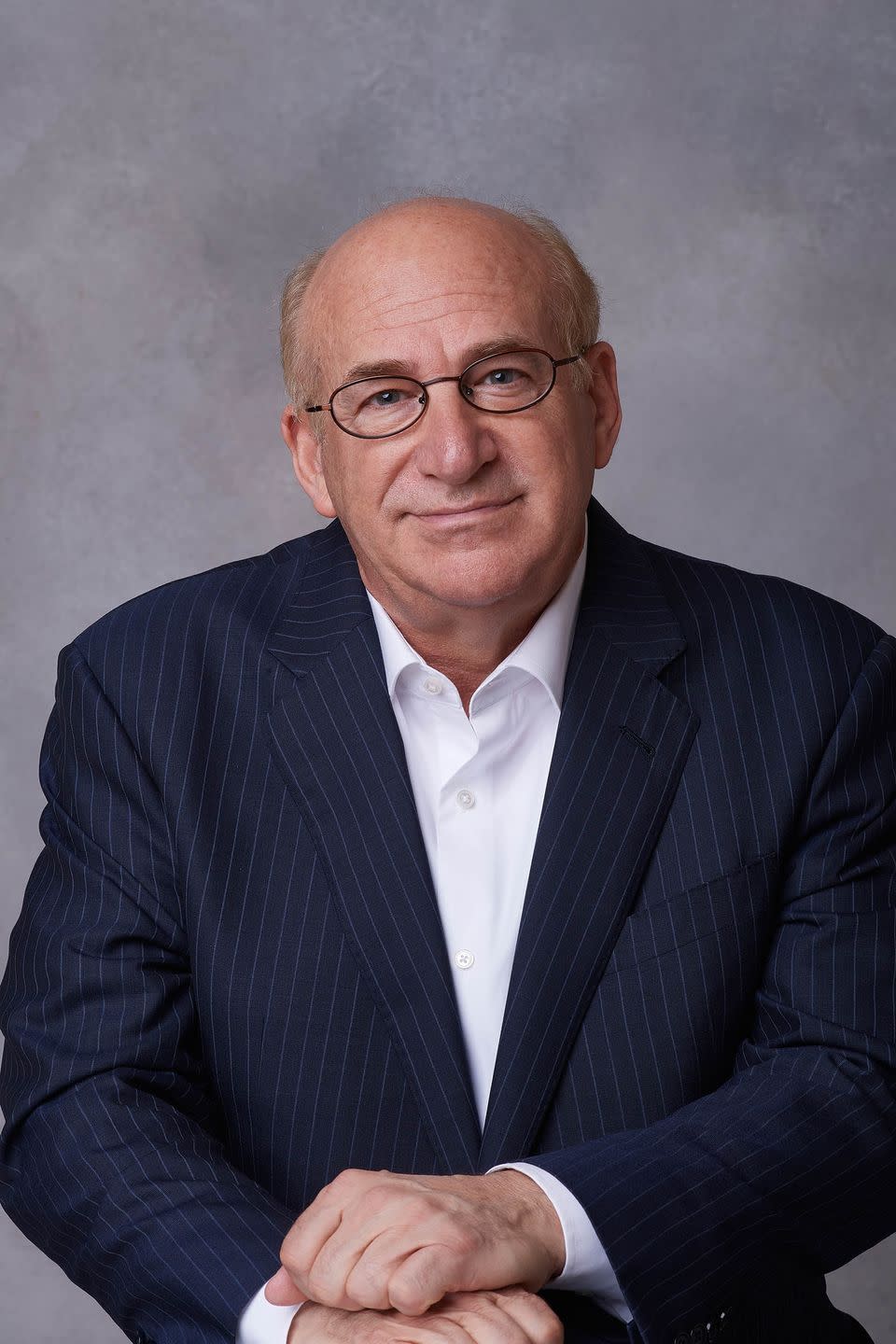
There were, in fact, many more allegations involving inappropriate behavior that had been reported, but were never been fully amassed in one specific number. When we began building up those numbers, it was staggering. It began to show patterns in the way Trump did things. We came upon a story involving a supermodel at the Plaza Hotel where Trump entered this woman’s suite in the middle of the night. This follows something that another of his accusers had previously named in court papers, in which Trump had entered the room of a model at Mar-a-Lago during the night. Behavioral patterns began to emerge, and it was eye-opening that there were many incidents that had not been reported by the media in 2016. [Trump has repeatedly denied all of the accusations against him that have previously been made public. He has said that the sexual misconduct allegations against him are made up and politically motivated.]
ESQ: Having gone all the way back to Trump’s childhood and education, what did you learn about the conditions that grow a predator? Is it nature or nurture?
Monique El-Faizy: With Trump, it’s very easy to see the influences. These are societal attitudes and they’ve changed a bit across generations, but not completely. What’s important in this book is that this isn’t about an individual man and his individual wrongdoings. It is about that, but it’s also about wider societal attitudes and systems that allow these men to proceed unchecked. A classmate of Trump’s told us that they learned about women through Playboy, then they graduated and realized, I can’t be like that. Trump never had that realization. I think the man is responsible for refusing to change his attitudes, but I also think he’s a reflection of larger societal trends. His evangelical supporters talk about that. They say, “What do you expect? That’s how society treats women. Why should we expect the president to be any different?”

ESQ: Why, in your opinion, do some of Trump’s female followers turn a blind eye to his behavior or become actively complicit in it?
ME: I think there are different things: there’s the religion aspect and the patriarchy that exists within religious structures, which allows women to turn a blind eye. In their personal lives, systemic patriarchy is normal, so it’s comfortable for them. Also, the church has committed its own abuses, and it has a culture of covering them up. But if you look at the types of women that tend to support Trump, they tend to be non-college educated suburban women. Many of them are stay-at-home mothers, or if they’re not, they’re dependent on their spouses for their social standing. If we have this world where men can be held accountable for wrongdoing and these women’s husbands are suddenly held accountable for things they may have done, their status falls along with their husbands’ status. When it comes to the women who support Trump, they tend to see their own societal status caught up in their partners, whereas college-educated, working women are freer to have their own opinions that are not linked to men’s standing.
ESQ: Other powerful men accused of sexual abuse haven’t lost their fortunes or their mansions just yet, but they have lost their jobs. Trump, however, has lost nothing. These accusations never seem to stick meaningfully to him. Why is that?
ME: I think he’s so brazen, he just rides it out. I think that works for him. Trump has done this incredible jiu jitsu where he makes himself or the perpetrator into the victim. It’s the women who become the sources of danger.
ESQ: You describe fashion shows and pageants as a “hunting ground” for Trump. What did that environment look like?
ME: Without question, this was a hunting ground not only for Trump, but for wealthy men who were in this circle. They would go to parties arranged specifically with models, many of them very young, in which the sole purpose of these parties was for men to pick up these women. These things are always about power, not about sex. You have these older, rich, powerful men, and girls who are there alone.
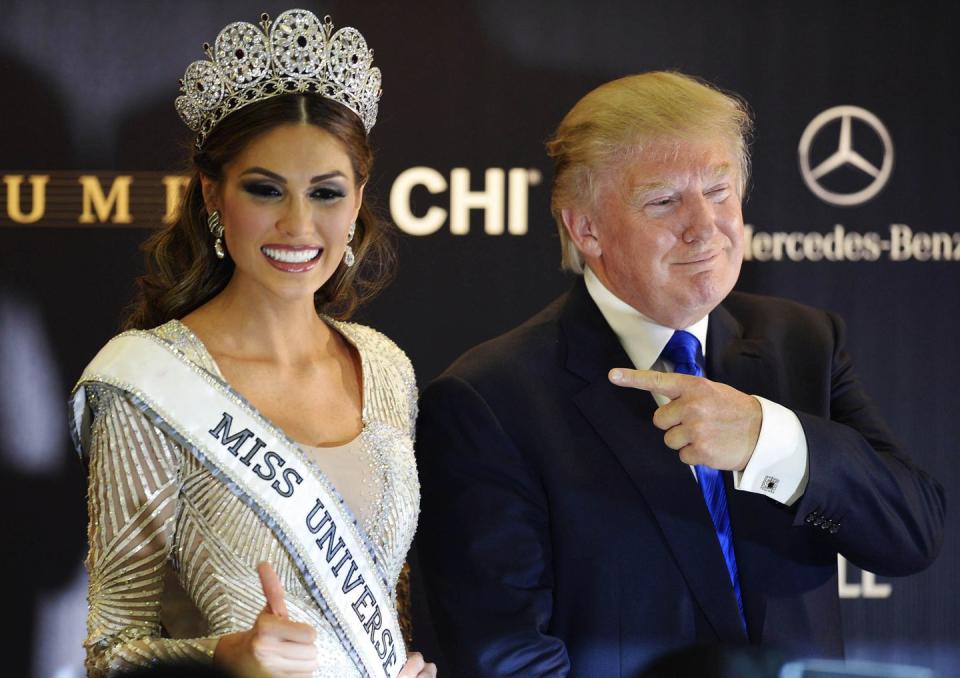
BL: There’s also no question that when a lot of these younger models were brought to New York for various competitions, particularly from foreign countries, they didn’t fully speak the language, and in many cases they traveled by themselves. In the words of Heather Brayden, a model I interviewed in Beverly Hills, these women were like fresh meat for these men. Heather saw how these women became consumables for men like Trump and some of the others.
ESQ: As we move toward the impeachment process, one thing getting lost in that discussion is Trump’s misconduct with women. There’s a lot of talk about obstruction of justice and collusion with foreign powers, but sexual misconduct keeps falling at the bottom of the list. Why is that?
ME: The reason we have this president is because these stories are not seen as important--because women’s stories have been for decades either brushed off as insignificant or dismissed as untrue. I think that’s a factor in this, and it’s also that people look at stories like this as personal behavior. It’s important to remember that his conduct with women is a reflection of his attitudes about women. This is a man setting policy for women, about women--not just in the US, but globally with the abortion gag rule. These stories are incredibly significant not just because women shouldn’t be treated poorly, but because they affect women’s lives around the world. I think that’s getting lost. People see these stories as personal transgressions, and they don’t think about the larger ramifications.
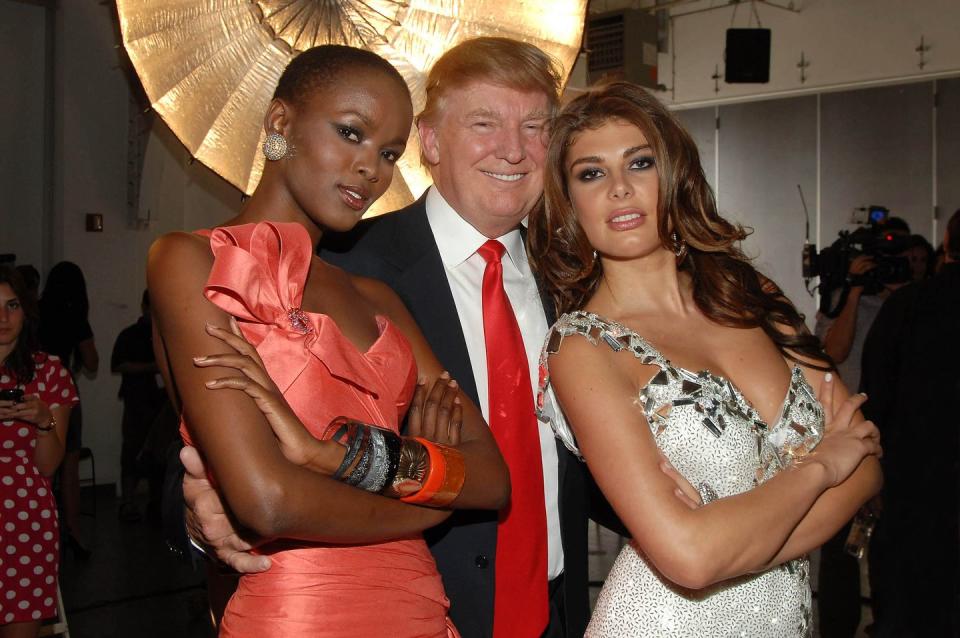
BL: One thing I’m really disappointed with is that when I sent an 18-page comment memo to the White House, I was met with silence. I hoped that if Donald Trump didn’t want to speak on these allegations, the White House would at least provide a surrogate, whether it be his daughter, Kellyanne Conway, or another woman who could speak on his behalf. I never heard anything. This is a summary of his life over the course of several decades, and it paints an extremely disturbing portrait of the President of the United States, who wants to be elected for another four years. Even with everything else going on, these are issues that should be absolutely transparent to the public.
ESQ: In what ways did this undertaking surprise you? Did you encounter anything you didn’t expect?
BL: I was surprised by how much predatory behavior connected to Donald Trump is still out there. We did this book on a deadline. If we’d been able to devote two years of reporting to this book, there’s no telling how many untold stories we would have found. That was the most shocking thing--that there are still so many women with stories to tell. I’ve been overwhelmed emotionally by hearing so many of these stories--how difficult it is for these women to feel comfortable telling their stories. Take Karen Johnson. She deliberated for two months whether or not to come forward, fearing she wouldn’t be believed because she was once a dancer.
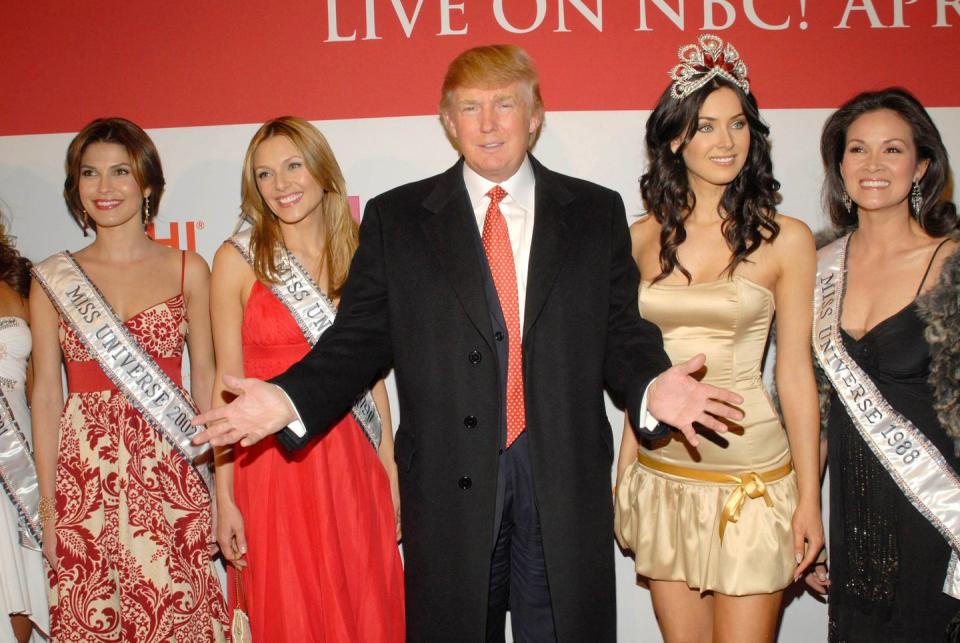
ME: And she’s probably right. So many women who come forward are constantly discredited. What was interesting to me was that, as you put all these accounts together, patterns emerge. Almost all the women that we spoke to somehow blame themselves. I shouldn’t have worn such a short skirt; what vibe was I putting off; how silly did I look? They’re all looking at themselves, but if you look at the patterns, you realize it has nothing to do with the women. If it wasn’t one woman, it would’ve been another woman. It was painful to see how women are still blaming themselves for the predatory behavior of men.
ESQ: What’s the next movement in the story of Trump and women?
ME: I hope that 2018 showed us what’s coming. We had a record number of women running for office and winning. We see already the impact of that. In the book, we write about how the state legislature in Nevada is now majority women, and they’re passing completely different kinds of laws. What I hope comes next is a realization that these kinds of abuses will continue until you put women in office, in boardrooms, and in positions of power. That’s the only way anything is going to change.
You Might Also Like

